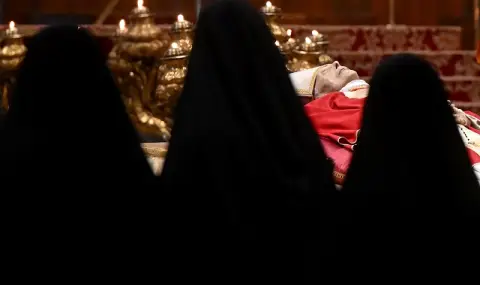The death of Pope Francis at the age of 88 in the early hours of Easter Monday puts the Catholic Church before one of its most important elections in modern history.
A conclave - a meeting of cardinals who will gather in the Sistine Chapel in the Vatican to elect a new pontiff - will be convened in the coming weeks.
The stakes are high: will the new pope continue Francis' reformist course or turn the tide towards a more conservative vision?
An Italian comeback?
After three papalities originating outside Italy, some observers believe it is time for an Italian to once again lead the Church. Among the main favorites is Cardinal Pietro Parolin, the Vatican's secretary of state and Francis' right-hand man. Parolin has a long diplomatic record, including involvement in agreements with China, but is seen by some as too bureaucratic and lacking the charisma of his predecessor.
Another possible Italian candidate is Cardinal Pierbattista Pizzaballa, the Latin Patriarch of Jerusalem. With experience in the Middle East, a command of Hebrew and an openness to interfaith dialogue, Pizzaballa is among the interesting and younger options - a fact that can be interpreted as both an advantage and a challenge for selection.
The first African or Asian pope in modern times?
Cardinal Luis Tagle of the Philippines is another frequently mentioned candidate. He is close to Francis' vision of social justice and has been critical of repressive policies in the Philippines.
From Africa, the name of Ghanaian Cardinal Peter Turkson has been mentioned again - a candidate with influence but also with controversial statements in the past that could reduce his chances.
Among other names that are gaining popularity are Cardinal Fridolin Ambongo Besungu from the Democratic Republic of Congo and Brazilian Jaime Spengler - president of the largest bishops' conference in the world.
The conservative resistance
The conservative wing of the Church will also try to impose its own candidate. One of the leading names in their ranks is Cardinal Raymond Burke from the United States, but many consider him too polarizing. Therefore, Hungarian Cardinal Péter Erdő is perceived as a much stronger candidate. He is more moderate in his views and positions and potentially acceptable to a wider circle of cardinals.
Erdo is supported by Prime Minister Viktor Orbán and embodies a vision of a traditional, Europe-oriented Church. He has also managed to establish himself in recent years as a leading opponent of Pope Francis' policies.
A changing landscape of cardinals
Of the 135 cardinals who will enter the conclave, 109 were appointed by Francis. This gives the impression of a liberal majority, but many of these cardinals come from countries with more conservative cultures and may seek a balanced, even traditionalist choice. Francis' reforms, including a reduction in regular meetings in Rome, have also changed the dynamics in the Vatican, increasing the influence of cardinals from Asia, Africa and Latin America.
